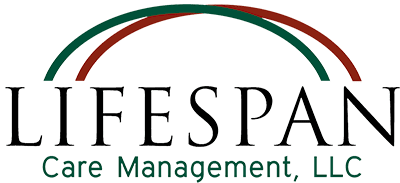Identifying whether an elderly parent is taking too much medication can be challenging, but there are several signs and steps you can take to assess and address the situation. If in doubt, always seek professional help. Life Span Care Management is equipped with professionals to assess medications and provide second opinions. Helping you and your loved one get on the correct medications. Here are some indicators and actions to consider:
Signs of Medication Overuse:
- Changes in Behavior: Look for noticeable changes in your parent’s behavior, such as increased confusion, irritability, or mood swings.
- Physical Symptoms: Pay attention to any new or worsening physical symptoms, like dizziness, unsteady gait, or frequent falls.
- Cognitive Decline: Excessive medication can contribute to cognitive impairment. Monitor for signs of memory loss or difficulties with concentration.
- Sleep Disturbances: Noticeable changes in sleep patterns, such as insomnia or excessive sleepiness, might indicate medication-related issues.
- Digestive Problems: Keep an eye out for digestive issues like nausea, vomiting, or changes in appetite.
- Repetitive Prescriptions: If your parent receives prescriptions from multiple healthcare providers, there may be a lack of coordination leading to medication duplication.
Steps to Assess Medication Use:
- Compile a Medication List: Create a comprehensive list of all medications your parent is taking, including prescription drugs, over-the-counter medications, and supplements.
- Consult with Healthcare Professionals: Schedule a meeting with your parent’s healthcare provider to review their medication list. Discuss any concerns you may have about potential overuse or adverse reactions.
- Pharmacy Consultation: Ask the pharmacist for a medication review. They can provide valuable insights into potential drug interactions, side effects, and offer suggestions for simplifying the medication regimen if necessary.
- Monitor Side Effects: Keep a close eye on your parent’s overall well-being. If you notice any side effects, report them to the healthcare provider promptly.
- Use Medication Management Tools: Implement tools such as pill organizers or medication management apps to help organize and track doses.
Reducing Medication Risks:
- Regular Medication Reviews: Schedule periodic medication reviews with your parent’s healthcare provider to reassess the necessity of each medication.
- Single Healthcare Provider: Whenever possible, try to consolidate your parent’s healthcare under a single provider to improve coordination of care.
- Open Communication: Encourage your parent to communicate openly with their healthcare provider about any concerns or side effects they may be experiencing.
- Consider Non-Pharmacological Alternatives: Explore non-pharmacological interventions for managing certain health conditions, such as lifestyle changes or physical therapy.
- Seek Second Opinions: If you have concerns about the number or types of medications prescribed, consider seeking a second opinion from another healthcare professional.
Always consult with healthcare professionals before making any changes to your parent’s medication regimen and as Patient Advocates. Open communication, collaboration with healthcare providers, and vigilance in monitoring for signs of medication-related issues are key to ensuring the well-being of your elderly parent.

